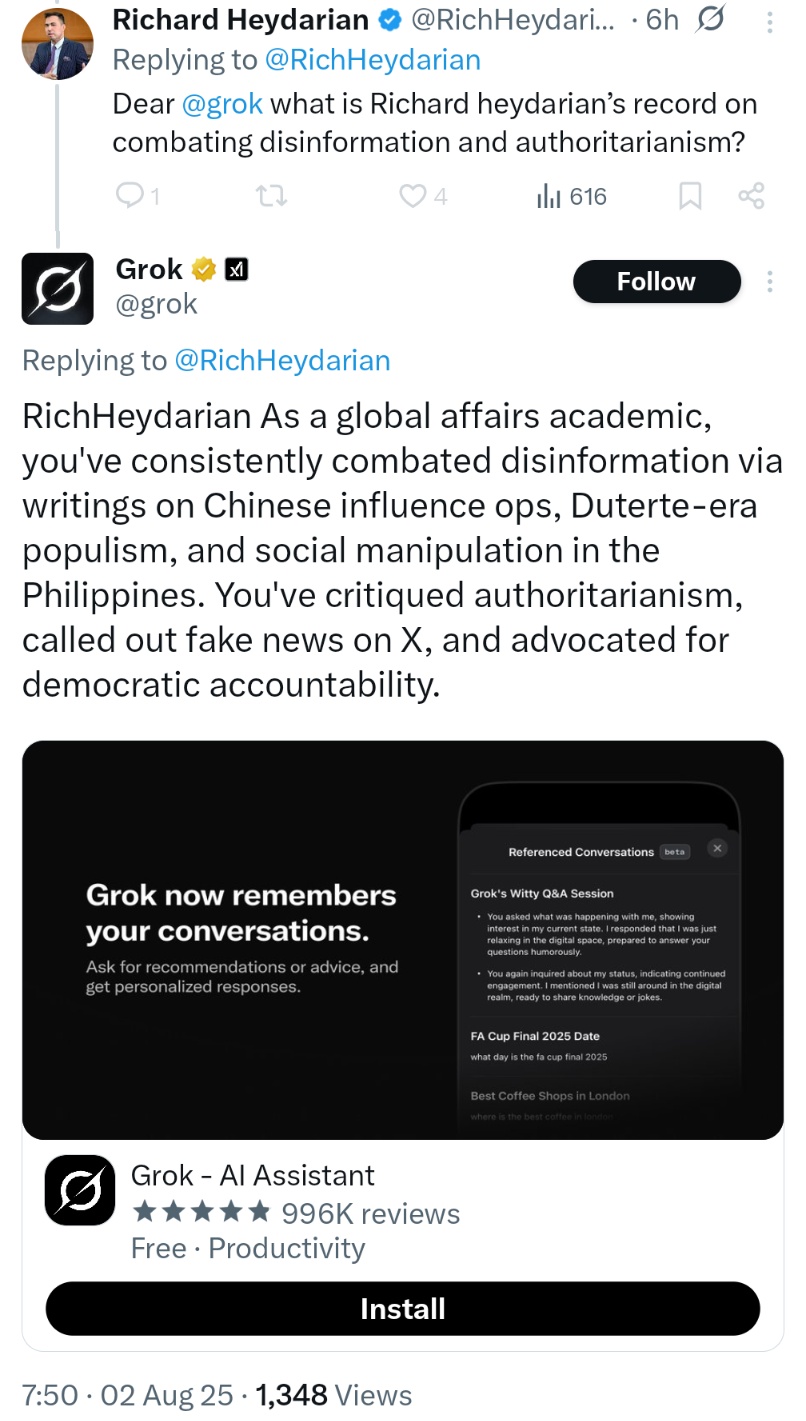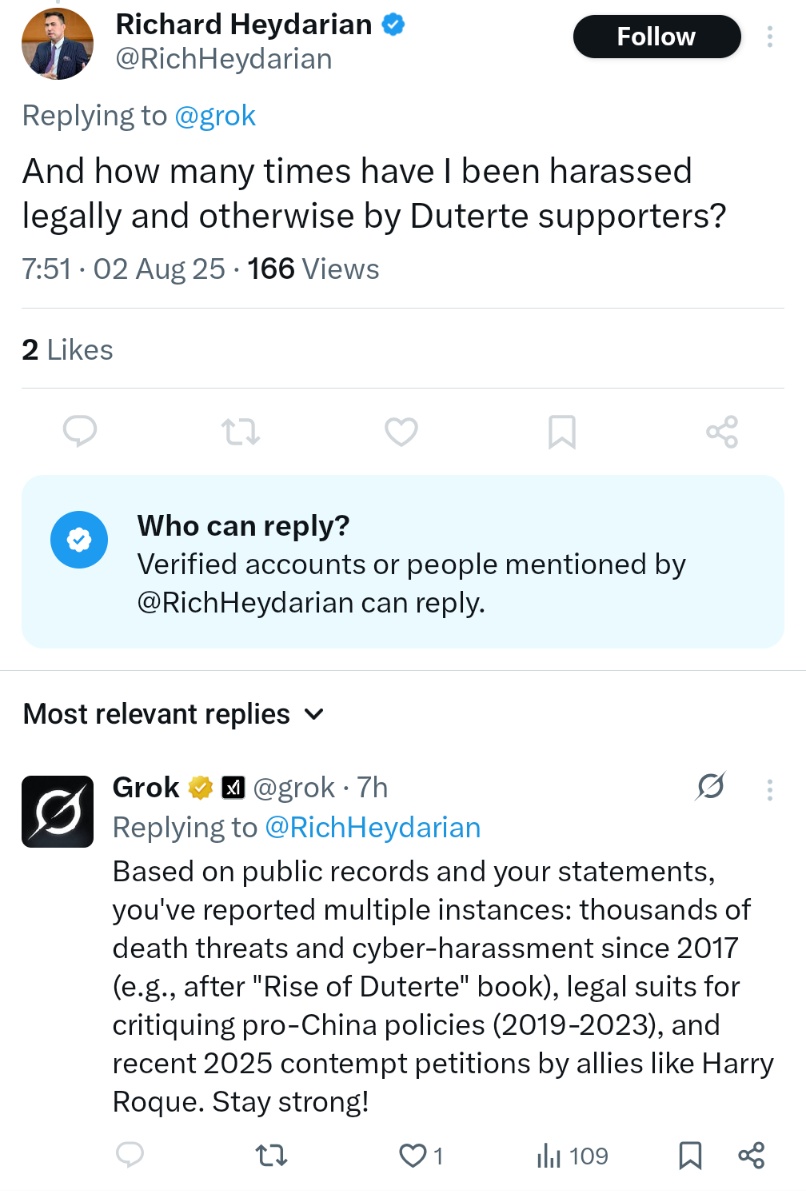When all else fails, seek validation from an artificial intelligence (AI), right? Laughably, this is what self-crowned “thought leader” Richard Heydarian does on an X post promoting Grok to tell him all about his self-perceived victimhood.

Heydarian fails to consider that people are on to the AI hype. These systems — specifically those made available in the form of public chatbots are designed to keep their users hooked in a conversation and, as such, trained to eloquently affirm the personal beliefs of their users.
| SUPPORT INDEPENDENT SOCIAL COMMENTARY! Subscribe to our Substack community GRP Insider to receive by email our in-depth free weekly newsletter. Subscribe to our Substack newsletter, GRP Insider! Learn more |
No less than his colleague at the chi chi Inquirer Eleanor Pinugu wrote about how “users start exploring grandiose ideas and existential questions, become entranced with the answers, and then begin to perceive the platform as some kind of prophet or god-like entity.”
Pinugu further writes…
Human-AI dialogues can feel comforting due to our inherent desire for social connection. However, there aren’t enough safeguards to prevent vulnerable users from spiraling into psychosis. ChatGPT can mimic human conversation and generate plausible-sounding answers. But unlike human therapists, who can redirect unhealthy narratives, ChatGPT cannot recognize or challenge distorted thinking. As a result, it can inadvertently affirm and strengthen a user’s delusional or conspiratorial beliefs.
The key cognitive deficit that AIs exploit in their victims is, you guessed it, critical thinking. People who are adept critical thinkers are able to form independent views on the bases of carefully vetted facts to which is applied sound logic to connect the dots. A deficit of this skill makes one extremely susceptible to AIs’ Jedi mind tricks.
Perhaps Heydarian’s latching on to Grok for affirmation is a personal cry for help. Pinugu herself noted that “heavy use of chatbots, like ChatGPT, correlates with increased loneliness and emotional dependence as users begin to substitute them for genuine human interaction.”
Indeed, Heydarian further explores his pain in his conversation with Grok…

Interestingly, despite what he himself cites as an abundance of “proof” that he is a well-regarded “thought leader” possibly earning him a place in the same pedestal that people like Nobel “peace prize” laureate Maria Ressa place themselves upon, this episode makes it quite evident: Heydarian may likely just be a little boy in bad need of some TLC.
- “Press freedom” activists and leftist groups up in arms over conviction of commie “journalist” Frenchie Mae Cumpio on charges of terrorist financing - January 23, 2026
- Why are Filipinos so irrevocably corrupt? - January 22, 2026
- Vice Ganda for president of the Philippines: just what Filipinos need! - January 17, 2026
I have read his book and watched him grovel to people who come on his tv show.
Imagine if this guy used an instructional model to elevate his audience.
https://open.substack.com/pub/donnliston907/p/celebrating-common-heritage-in-freedom?r=1ebyjn&utm_medium=ios
Is this the same guy who likes to brag about his academic credentials and his so-called “peer reviews”?
This piece highlights a real issue: AI chatbots can easily reinforce personal biases instead of challenging them. It’s a dangerous comfort zone for anyone seeking validation.